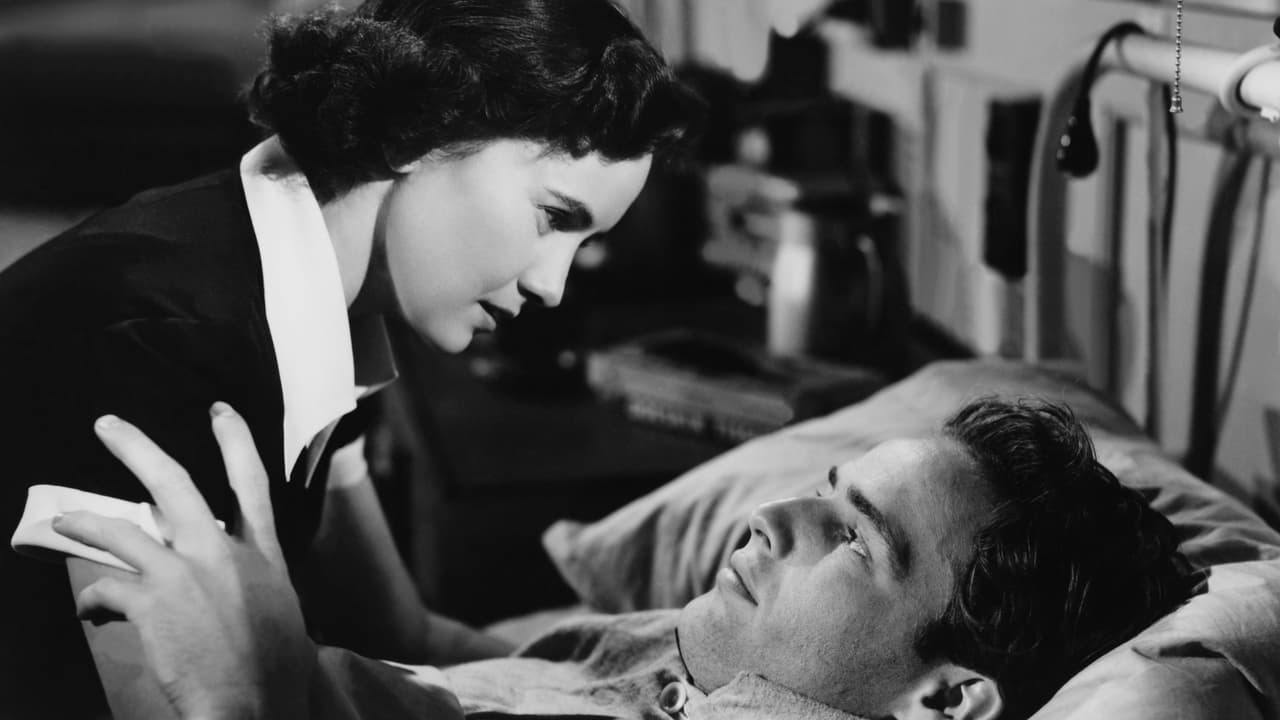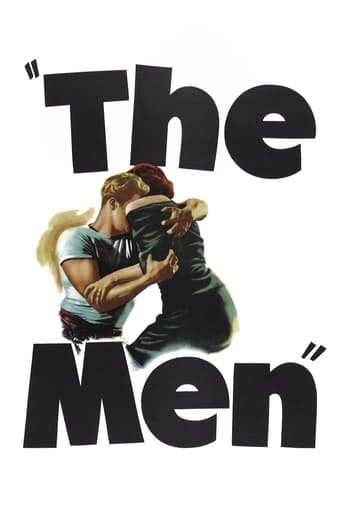GamerTab
That was an excellent one.
Titreenp
SERIOUSLY. This is what the crap Hollywood still puts out?
Nicolas
Ok... Let's be honest. It cannot be the best movie but is quite enjoyable. The movie has the potential to develop a great plot for future movies
Delight
Yes, absolutely, there is fun to be had, as well as many, many things to go boom, all amid an atmospheric urban jungle.
malvernp
Marlon Brando in "The Men" played a character quite similar to the one portrayed by Harold Russell in "Best Years of Our Lives." Both men had been seriously damaged (physically and psychologically) by the ravages of wartime combat. Both had major problems returning to civilian life. Both were decent men caught up in the terrible personal conflict of reconnecting with sweethearts left behind who still wanted to marry them. Ultimately both adjusted to their situation and the ending in both films----if not happy-----was certainly optimistic."The Men" is by far the more worthy story because it contained the greater reality. The many details that contributed to the Brando character's attitude are fully fleshed out----and leave no doubt about what they were and why they were important to better understand his feelings and emotions. Russell's character is not fully realized----perhaps because there were several other story lines in his film.Is Fred Zinnemann a better director than William Wyler? Maybe not. But in this one instance---when each directed a similar story----Zinnemann achieved the greater work of art----a classic in its own right.
secondtake
The Men (1950)Well, you do have to see a movie like this partly to see Marlon Brando before his stellar rise to fame (ultra-fame) in "On the Waterfront" (1954) and "Streetcar Named Desire" (the next year, 1951). This is his first role, and he's already the famous, complex, simultaneously macho and tender Brando. He plays Ken, and he is bedridden because he can't walk.Around him are a host of actors, amateur and professional, who are all unable to walk, probably permanently, from war injuries. This is a story of adjusting to being in a wheelchair, getting others to accept you like this, and ultimately getting to accept it yourself. It's an emotional more than a physical battle, and a powerful one.The doctor in charge is in some ways the main character, or the most present, throughout, and he's strong if somewhat uncomplicated in his portrayal of a devoted, tireless medical worker. He's played by Everett Sloan, who has just come off a bizarre but terrific role as a rich lawyer with difficulty walking in "Lady from Shanghai" (a Welles movie--and Welles gave Sloan his entrance into Hollywood in "Citizen Kane").The woman who is both lovingly sympathetic and also scared in her uncertainty as Ken's girlfriend and wife. She's kind of perfect, turning into that somewhat disconnected 1950s housewife before our eyes (influenced surely by her officious if kindly parents, a kind of 1930s Republican do good but also look out for yourself first attitude). It's a perfect fit, set up by the screenwriter and worked by with surprising believability by the young director, Fred Zinnemann ("From Here to Eternity") with Stanley Kramer producing. These two men were among the most socially conscious in a post-war Hollywood that had many directors trying to make a difference in their films (Kazan and Lumet would be two others). And "The Men" is certainly about showing a problem with realism and optimism at the same time. It's a kind of parallel to the film noir films which made dramatic fictions out of many returning servicemen. This was closer to the reality for many.Is it a great film? For some small reasons, no, as much as Brando is convincing in his role. For one thing, it's just too clear what the motivation of the director and producer is, so the movie movies forward without clear dramatic tension (even though you don't quite know the outcome). For another, the acting is generally very good without being wrenching (and the subject is frankly wrenching). It feels a little like we're being given a lesson, a good lesson, but still a bit like schoolwork made vivid on the screen. This will be apparently right from the first scene where a room full of wives and girlfriends ask questions (frank and important questions) of the doctor, who wisely and frankly answers them.Good stuff, great stuff, and as a film experience, incomplete stuff.
Michael Neumann
Several paraplegics in a veteran's hospital learn to cope with the physical and emotional scars of war, but if one of them wasn't a young Marlon Brando the film wouldn't be half as interesting. His typically vital performance greatly improves what would otherwise be just another earnest but melodramatic civics lesson, presented in the manner of an Armed Forces instructional movie: How To Treat Our Homecoming Heroes. To its credit the film was considered quite daring when first released, for its forthright depiction of an unpleasant (and thus generally ignored) reality. And with a running time of only eighty odd minutes it fairly zips along at an unflagging pace. The film was produced (you might have guessed) by a young Stanley Kramer.
mrb1980
Marlon Brando and Teresa Wright give fine performances as a disabled veteran and his girlfriend/wife. After Brando's character is paralyzed from the chest down in WWII, he goes through anger and denial before deciding to rebuild his life. After marrying his old girlfriend (Wright), he begins to question their life together and flees back to his old pals at the paralyzed veterans' center. All is forgiven as the two reconcile, resigned to a future they never could have planned.Brando and Wright are good, of course. However, the film belongs to the supporting cast, primarily Jack Webb and Richard Erdman as Brando's paralyzed buddies at the veterans' center, and to Everett Sloane, who towers over everyone as a wise and brutally honest physician. It's not a feel-good movie, but one that gives valuable insight into the challenges faced by many men returning from war. It's also pretty daring for 1950, with its frank treatment of some pretty heavy subject matter.

